Courses

Now I Have a Poem, HO-HO-HO
Chrissy Williams on her forthcoming festive one-day poetry workshop, ‘Yippee-Ki-Yay: Writing Poems Inspired by DIE HARD’. Ah, Christmas, the most wonderful time of the year, a time for sharing warm fires, hastily wrapped gifts, and generational discord. Like many, I gravitate towards Die Hard at Christmas: a film about family and violent resolution with all…
Read More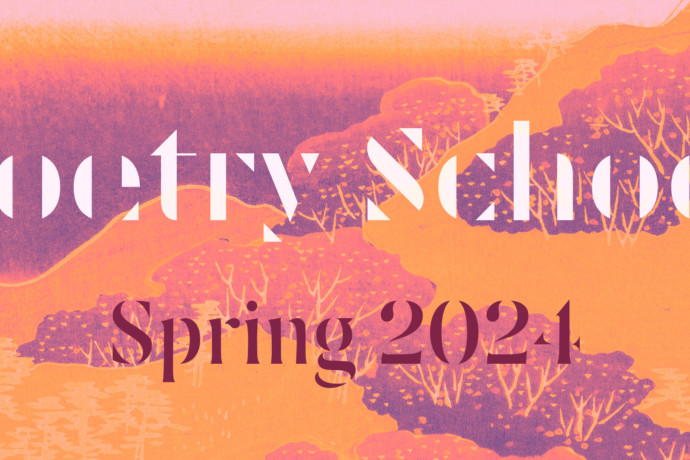
Spring 2024 – Quick Course Guide
Our Spring Term is now live and we’ve got a whole host of brilliant tutors and poetry courses lined up, so be sure to book promptly to avoid disappointment. Below is our handy Quick Course Guide, where you’ll find everything you’ll need to know. Online Courses INTERACTIVE Our classic 10-week online poetry courses with Live…
Read More
‘What are we supposed to use, harsh language?’
Chrissy Williams on using the movie ALIENS to create her one-day poetry workshop, Short Controlled Bursts. When poets, myself included, turn to cinema for inspiration, it’s often to complex films with a philosophical bent which are crafted with deliberately poetic tools; not machine guns, armored cars, and aliens who burst through the chests of their…
Read More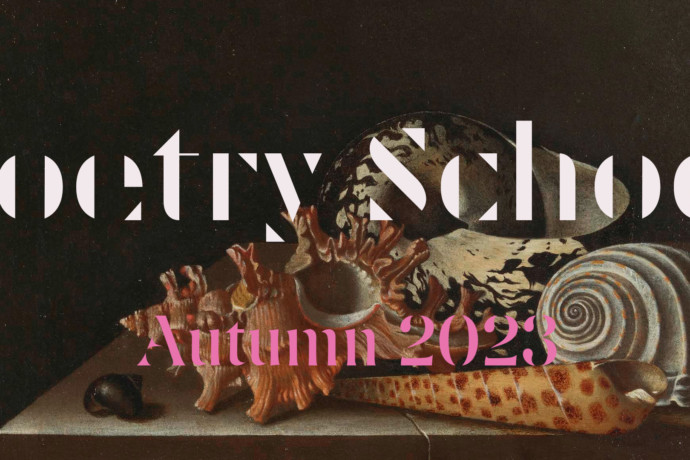
Autumn 2023 – Quick Course Guide
Our Autumn Term is now live and we’ve got a whole host of brilliant tutors and courses lined up, so be sure to book promptly to avoid disappointment. Below is our handy Quick Course Guide, where you’ll find everything you’ll need to know. Online Courses INTERACTIVE Our classic 10-week online courses with Live Chats. The…
Read More
Form Laboratory
Here are some exceptional poems from Jacqueline Saphra’s Form Laboratory. When I proposed this set of collaborative workshops to The Poetry School, I had no idea of the creativity it would unleash. During the darkening evenings of Autumn 2022, Thursdays became a poetic laboratory where an adventurous, generous, and inspired group of poets invented new…
Read More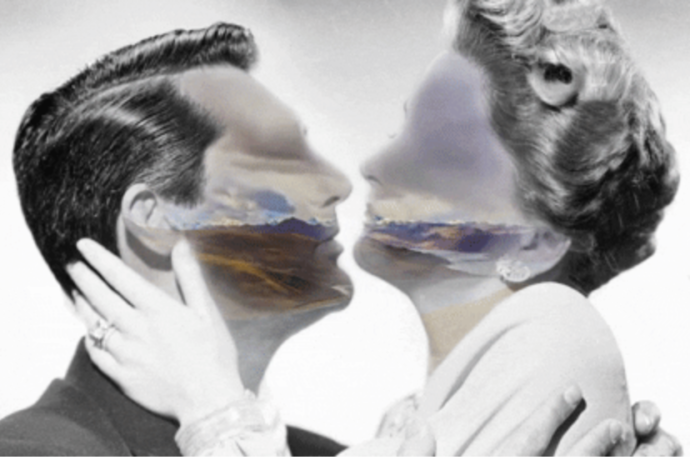
More love poems? Really?
‘Love’ must be one of the most overused words in the English language. So much ‘love poetry’ has been written over the course of human experience, that it might be reasonable to ask – why bother adding to the literature of love poetry? Is there anything more to say? I think there’s lots more to…
Read More
Fortnightly Feedback with Leah Umansky
It’s always a good idea to get another set of eyes on something. Sometimes, we need new ways to look at the world. The ordinary is often extraordinary; the extraordinary is sometimes ordinary. This is nothing new. The same is true for the world of a poem and a poem is really just its own…
Read More
Summer 2023 – Quick Course Guide
Our Summer Term is now live and we’ve got a whole host of brilliant tutors and courses lined up, so be sure to book promptly to avoid disappointment. Below is our handy Quick Course Guide, where you’ll find everything you’ll need to know. Online Courses INTERACTIVEOur classic ten-week online courses with Live Chats. Verse Epic:…
Read More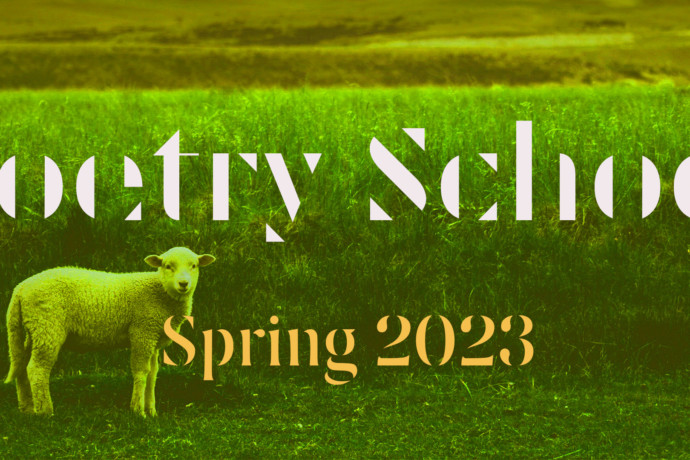
Spring 2023 – Quick Course Guide
Our Spring Term is now live and we’ve got a whole host of brilliant tutors and courses lined up, so be sure to book promptly to avoid disappointment. Below is our handy Quick Course Guide, where you’ll find everything you’ll need to know. Online Courses INTERACTIVEOur classic ten-week online courses with Live Chats. ‘Blank Page…
Read More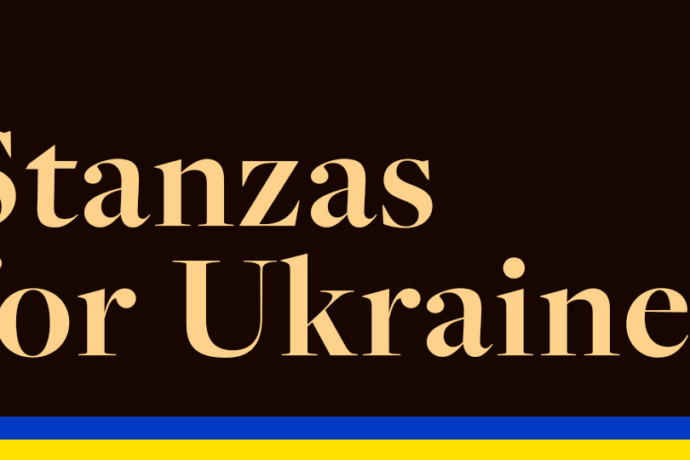
Stanzas for Ukraine – 9
It Was As If There Was No Life And No Poetry Before 24 February 2022 by Andrii Kovalenko, Ukrainian poet, novelist, journalist (Kyiv). Translated from the Ukrainian by Stephen Komarnyckyj Six months since the beginning of Moscow’s aggression against Ukraine and our latest war of liberation, life is divided into what came before and after….
Read More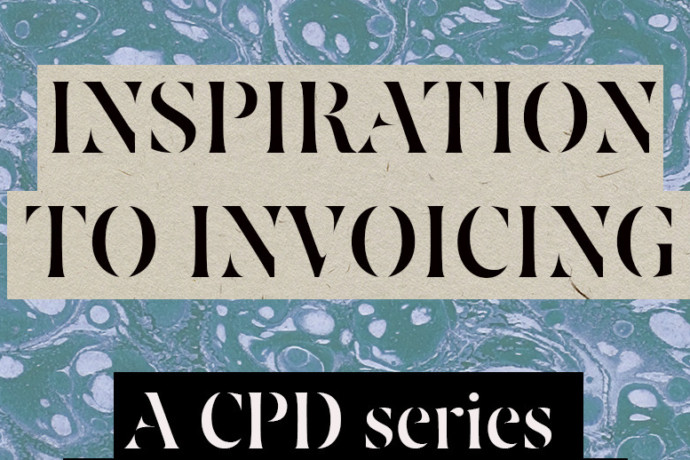
INSPIRATION TO INVOICING
A CPD series for professional & aspiring poets Becoming a freelance poet – whether full- or part-time, alongside employed work – requires a range of business and practical skills, not to mention the actual practice of writing and publishing. These sessions aim to creatively and reflectively unpack these skills, inviting participants to consider their own…
Read More
Stanzas for Ukraine – 8
A World That Is Still Watching… by Anna Malihon. Translated from the Ukrainian by Stephen Komarnyckyj ‘Everything will start from a small country, from one that no one would have thought of’ she said ‘there will be great changes in the world, at a high price, along with blood and death. However, it will be…
Read More
Stanzas for Ukraine – 7
The Poet’s Nose by Serhii Rybnytskyi, translated from the Ukrainian by Stephen Komarnyckyj With what part of the body can I reflect on matters as a poet? My nose, which for me it is practically an ‘Achilles Heel’. Any blow can knock me down, the slightest cold or drop in blood pressure clogs my nostrils….
Read More
Poet as Archaeologist Studio Blog
This autumn, I’m thinking about what poets can learn from archaeologists and their discoveries. Poet as Archaeologist Studio will be a chance to generate new work, read and discuss poems and get feedback on your drafts. It will also be an opportunity to consider how a different discipline might inform our writing. I spent my…
Read More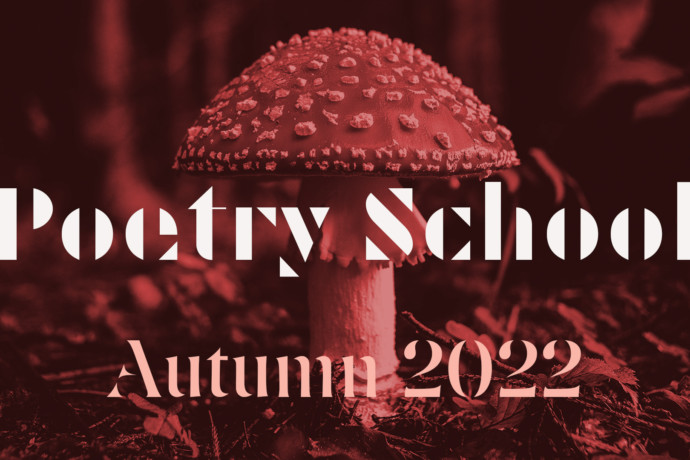
Autumn 2022 – Quick Course Guide
Our Autumn Term is now live and we’ve got a whole host of brilliant tutors and courses lined up, so be sure to book promptly to avoid disappointment. Below is our handy Quick Guide, where you’ll find everything you’ll need to know about our upcoming courses. Online INTERACTIVE COURSES:Our classic ten-week online courses with Live…
Read More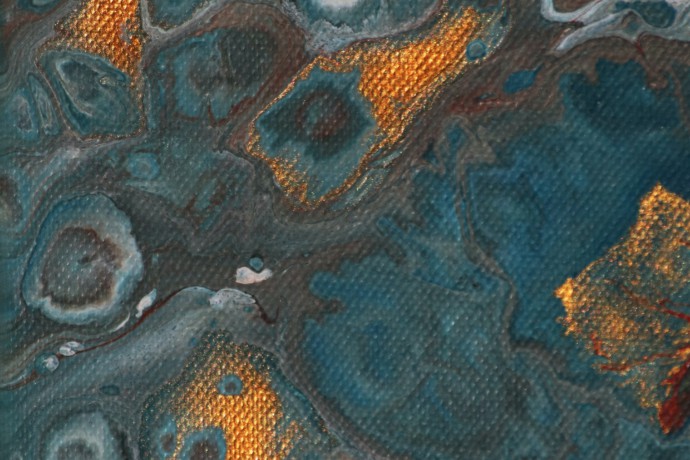
We have partnered with Griots Well, offering eight of their runners up free spaces on our Autumn Term.
Griot’s Well is a one year poetry development programme for Black and ethnically diverse poets over the age of 25. We’re excited to announce a new collaborative partnership with the brilliant Griots Well. We are offering their eight runners a free course as part of our upcoming Autumn term. The eight selected poets are part…
Read More
Snapshot on: Becky Varley-Winter’s Live Wires: Starting to Write
Our Beginner’s course ‘Live Wires: Starting to Write’ with Becky Varley-Winter recently completed another term and Becky has put together a zine to showcase the students’ best work, which you can see extracts of below. The next iteration of this course will take place in our Summer 2022 Term (running 12 May – 14 July)….
Read More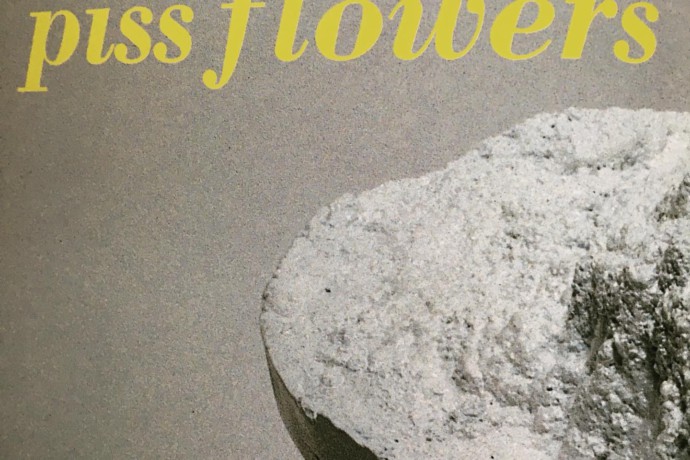
Taking the Piss Flower: on the pitfalls of writing poems inspired by art, and bringing something new to the party
Ekphrasis is one of those poemy words poets assume everyone knows, like villanelle, and pantoum; but my Mac doesn’t recognise it, flags it up, and takes me to Wiki – ‘an ekphrastic poem is a poem inspired or stimulated by a work of art’. I remember feeling so happy when I first discovered the word,…
Read More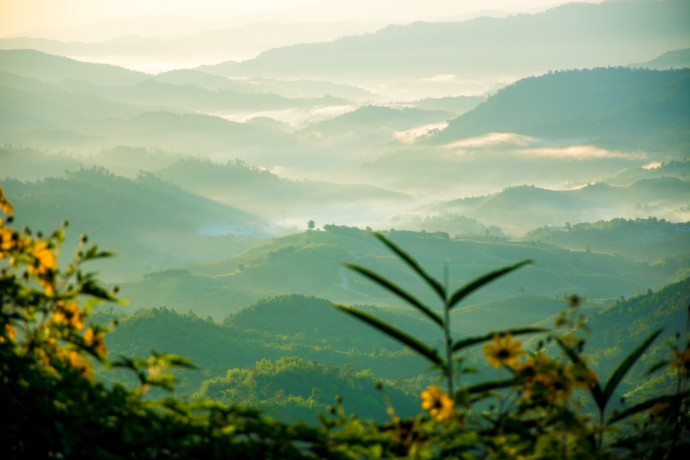
The Zen of Ecopoetics: the contribution of Zen to modernist American poetry
In Breathing: Chaos and Poetry, the Italian philosopher Franco Berardi suggests that poetry is the excess of semiotic exchange that goes beyond the limits of language and, by extension, transcends the limits of reality as we know it. In this sense, poetry offers us a way of rethinking our relationship with non-human beings and environments,…
Read More
Transreading Ethiopia with Chris Beckett
Selam hullu…..Hello everyone! I’ve already blogged about my boyhood in Addis Ababa as an intro for my autumn 2021 course on Childhood: A Source of Praise. So I don’t want to repeat too much of what I said then, but it feels like I’m travelling the same path again! It’s a really great feeling, because…
Read More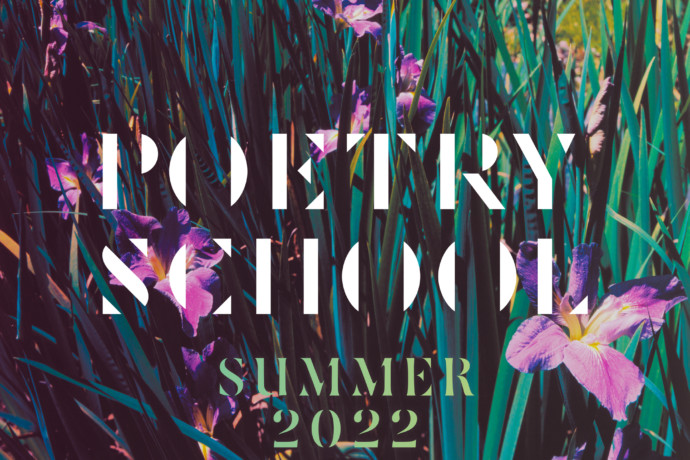
Summer 2022 – Quick Course Guide
Our Summer Term is now live and we’ve got a whole host of brilliant tutors and courses lined up, so be sure to book promptly to avoid disappointment. Below is our handy Quick Guide, where you’ll find everything you’ll need to know about our upcoming courses. Online INTERACTIVE COURSES:Our classic ten-week online courses with Live…
Read More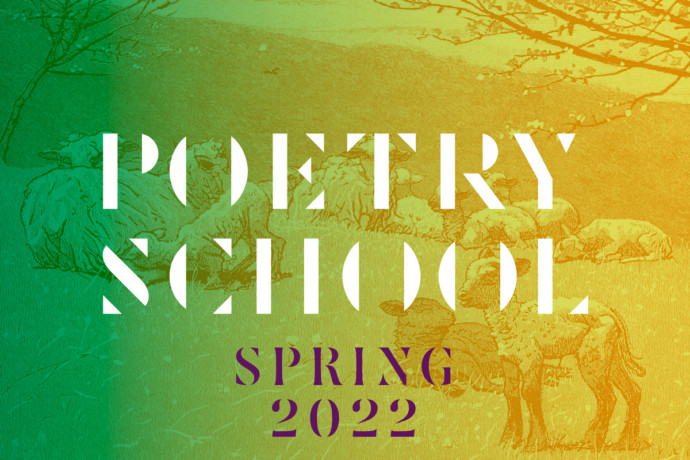
Spring 2022 – Quick Course Guide
Our Spring Term is now live and we’ve got a whole host of brilliant tutors and courses lined up, so be sure to book promptly to avoid disappointment. Below is our handy Quick Guide, where you’ll find everything you’ll need to know about our upcoming courses. Online INTERACTIVE COURSES:Our classic ten-week online courses with Live…
Read More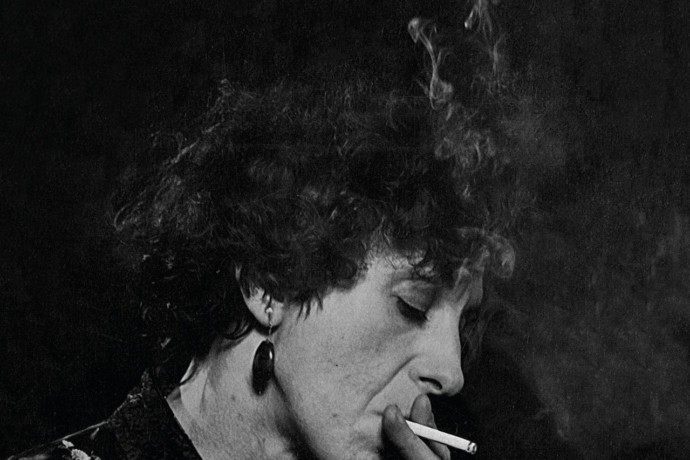
‘Tension, Tenderness and Truth: Reading Elaine Feinstein
We asked our tutor Adam Feinstein some questions about his course ‘Tension, Tenderness & Truth: Reading Elaine Feinstein’. This course will be a series of lessons exploring the work of renowned poet Elaine Feinstein. Adam is a poet, critic, and Elaine’s son – who better to illuminate her work? What could a student take away from this…
Read More
At Home in Hauntology
– Here in the garden, I notice change flickering and looping in the invisible lapse of time between my footsteps, bird feet, the silent beats of butterfly wings and the movements of flora. In my passing, I de-head the odd flower, I note a small bud in apprehension and the imminent rain. Mid summer vacillating between now and the ‘not yet.’ I hear the garden in its tumescent silence and sound. Time feels ‘out of joint’ here, as Derrida…
Read More
What we talk about when we talk about class / class is a slippery thing
Often, the problem of class is a hob ring, you won’t dare to put your hand on it. But it’s there all the same, in the food that we eat, in the air that we breathe, or just around the street corner where we live. Whenever I find myself trapped in a conversation so fraught…
Read More